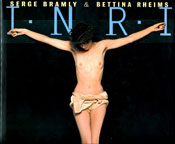According to the Dictionnaire de théologie catholique, ‘the Index is the catalogue of books that the Holy See has prohibited because they are bad or dangerous for the integrity of the faith and public decency, and that the faithful, except those who may have an official authorisation, may not read or possess.’
It is not just a question of fighting modern ideas, but of establishing, by effecting this exclusion, a definition of authority and doctrinal deviations.
Set up by the Catholic Church in 1600, the Index was established in several stages. It lists more than 5000 books and 3000 authors in its last edition in 1948.
It was extended by several additions up until 1966, when its obsolescence became clear to a part of the Catholic hierarchy, clerics and believers, as much as to other people.
Although the works of great writers of the 20th century are forbidden – Sartre was put into the Index in 1948 – the Bible, and its translations and analyses which differed from the Church’s authorized version, constituted most of works on the Index.




